Blancmange - Interview
by John Clarkson
published: 24 / 7 / 2012
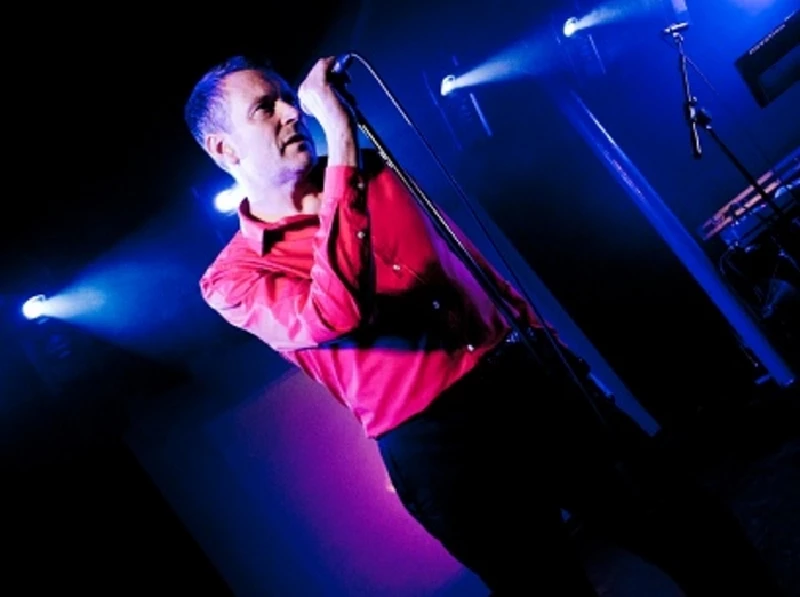
intro
in our second interview with him, Neil Arthur from synthesiser duo Blancmange speaks to John Clarkson about their new double CD compilation, 'The Very Best of Blancmange', which feature several rarities and unreleased tracks
Blancmange are an English synthesiser duo, which formed originally in the late 1970s, and reformed in 2010 after an absence of twenty-three years apart. The group consists of Neil Arthur (vocals, guitar and electronica) and Stephen Luscombe (synthesisers, keyboards), both of whom met shortly after Arthur, who was brought up in the Lancashire town of Darwen, moved to London. Blancmange had several charts in the 1980s, including ‘Living on the Ceiling’, ‘Waves’, ‘Blind Vision’, ‘That’s Love That is’ and ABBA cover ‘The Day Before you Came’. They also released on London Records three successful albums, ‘Happy Familes’ (1982), ‘Mange Tout’ (1984) and ‘Believe You Me’ (1985). A fourth album, ‘Blanc Burn', followed on Proper Records in 2010. Since reforming, Blancmange have toured the UK twice, but without Stephen Luscombe who has not been allowed by doctors to tour since developing an abdominal aortic aneurysm and heart difficulties. His place in the group has been taken for touring purposes by Graham Henderson on synthesisers, and Indian percussion player Pandit Dinesh who has appeared playing the tabla on all four Blancmange albums. Blancmange have recently released ‘The Very Best of Blancmange’, a double CD compilation on Music Club Deluxe, which, as well as all the singles, also features several previously unreleased and little heard tracks. In what is our second interview with them since they got back together, Pennyblackmusic spoke to Neil Arthur about ‘The Very Best of Blancmange’. PB: There have been five previous Blancmange compilations before this one. ‘The Very Best of Blancmange’, however, seems different to the previous ones as it has various unheard remixes and there are some fairly obscure tracks on it. How involved were you in putting it together in comparison to its predecessors? NA: I have never been involved in any of the others. None of those compilations came out while we were still active as Blancmange, and the record company put them together after we broke up. I would sometimes get a copy or sometimes I wouldn’t (Laughs). Sometimes I would not know there was another compilation out until a mate or someone told me that they had seen it in the record shops. With this one, however, Stephen and I were approached by the people who were putting it together at Music Club Deluxe, and so I said, “If you are going to do something and you are asking us about it, why don’t we have say with what is going on it?” What I did then was I asked the fans what they wanted. I went on Facebook and I said, “If there was a new compilation - because I was not sure at that stage if I was going to get involved or not - what would you want on it?” From that I collated their responses with my own list and sent it to Stephen, who had his own suggestions. We ended up from that with a blend of what the fans wanted, what the record company was going to insist went on there and what we wanted. Obviously not everything could go on there, and then there were some tracks that we couldn’t get a hold of. For example, I suggested the pre-tabla and sitar version of ‘Living on a Ceiling’. I have, however, only got a cassette copy of that and we couldn’t find another one anywhere. PB: Obviously the record company would want things on it like the singles and tracks like ‘Living on a Ceiling’, ‘Waves’ and ‘Blind Vision’. What did you want on it and what did the fans want on it? NA: The fans asked for things like the original version of ‘Waves’ which was pre-strings. When we knew that it was going to be a single, we went into a studio and recorded a huge orchestra with it as well. There was a version that came out on the very first ‘Happy Families’ album which didn’t have strings on it, and it wasn’t out there long before it was superseded by the one with the strings. There were things like that which people asked for, and so we dug them out and had them remastered. There were two tracks from a Peel Session, I Would’ and ‘Running Thin’, that had never been released, so we thought, “Let’s try and get a hold of those.” I was also talking to a mate of mine, and he said, “Why don’t you put an unreleased new track on it?” and so we thought, “What has not been released?” and put on it a relatively new track called ‘Making Aeroplanes (Without Victoria)’. PB: That track, ‘Making Aeroplanes (Without Victoria)’, seems very similar in theme to ‘By the Bus Stop@Woolies’ on ‘Blanc Burn’. Once again it is about your teen years in Darwen. Your Lancaster accent is more pronounced on that song than when you are usually singing. Do you see it as a natural continuation of that first song? NA: It comes from a similar era without a doubt. It was triggered by a photograph someone showed me of some of the times we used to have up on the moors above Darwen. It reminded me of something that happened then, and I thought that story would fit pretty well in with the song. PB: One of the joys of this compilation is that there are quite a lot of other tracks that even the Blancmange completist would have a hard time finding. Where did the version on it of ‘Why Don’t They Leave Things Alone?’ come from? NA: That was a very early version of a song that came out as one of our last singles. Its title changed to ‘I Can See It’. ‘Why Don’t They Leave Things Alone?’ was recorded originally as a demo, but it sounded right and we wanted people to have a listen to it. Another version of it appeared on ‘Believe You Me’. It was a pretty simplistic track and at the end of it I had this melody which I gave to Stephen, and he said, “Well, that sounds interesting. Let’s try and get cellos in on it,” and so we ended up getting a cellist to play the melody line. The whole original track was built around a melody line that went back and forward. PB: What about ‘Lorraine’s My Name’? Another version of that also appears on ‘Believe You Me’ under the title ‘Lorraine’s My Nurse’. NA: ‘Lorraine’s My Name’ was another demo, and was written on a BBC computer using a really early sequencer package. It was almost a baroque piece and the lyrics like the title ‘Lorraine’s My Name’ was just me mucking around with words. Again it was something different to put on the album that might not have got on if it had been on a conventional ‘Best of’. PB: ‘Sad Day’ also makes an appearance, It was the first track that you released, and appeared on the 1981 ‘Some Bizzare Album’ compilation which also featured early tracks from Soft Cell and Depeche Mode . How did you become involved with Stevo Pearce , the owner of that label? NA: I am still in touch with Stevo. He sent me a lovely message for my birthday a few weeks ago. In 1980 we self-released our first EP, 'Irene and Mavis’. We did a thousand copies of it, and he got a copy of that from Rough Trade, and he contacted us through an address on the back of it and then came to see us when we were supporting Master Flash at the Greyhound in Fulham. We just started talking, and he was putting on a few gigs at the time and asked us if we were interested in playing a gig down at the Bridge House for him. I think we supported B-Movie, and from there we ended up doing other gigs for him. Then eventually he asked us if we would put a track on the album, which was Some Bizzare’s debut album, and we decided that we would put on that one,‘Sad Day’. PB: ‘Sad Day’ was unusual for you in that it was entirely instrumental. NA: In the early days there were quite a lot of instrumentals. We also did some tracks in which Stephen did some singing and talking, and I would do a bit of vocalising which Stephen would treat through different effect pedals. We did quite a few instrumentals though. ‘Holiday Camp’ and ‘Just Another Spectre’ were two others, although they were never recorded. PB: You mentioned the ‘Irene and Mavis’ EP. It is often talked about on websites relating to you, but it has been little heard. Did any of those tracks make the compilation? NA: No. Funnily enough I have a digital copy of ‘Irene and Mavis’. Whether it will ever get released, I don’t know, but it has been talked about. Stephen and I have been talking about doing a limited edition of it, but of course once it is in a digital form it becomes unlimited (Laughs). PB: Does the fact that ‘Irene and Mavis’ , as you say, would stop being unlimited make you reluctant to release it again, or to put its tracks out on a compilation like ‘The Very Best of Blancmange’? NA: No, I am not precious about it. It was just that was a limit to how many things could be licensed beyond the usual ones with this compilation, and to how much room we had on the two CDs. Those tracks didn’t actually come up in conversation. With ‘Irene and Mavis’ the nearest we got to it was ‘Sad Day’, which was the oldest song that we recorded on the compilation. That was in August 1980. PB: The group played some dates with Grace Jones in 1981. This was shortly after her infamous appearance on ‘The Russell Harty Show’ in which she ended up beating him up on TV. At that stage she seemed a very scary woman. What was she like off stage? Was she as intimidating? NA: I didn’t find her intimidating at all. I got to sit on her knee. PB: How did you manage that (Laughs)? NA: It was backstage at the Drury Lane Theatre. We did two nights with her. We played with her on the 9th and 10th October 1981. We watched her performance on the first night after doing our then little ramshackle thing in front of the big fire curtains there. We came on with our little amps, and I think that I played guitar and Stephen had his keyboard and we did our thing. We both came from work and did this performance. We thought, “As long as we get to play, we’ll also get to see Grace Jones.” She was ploughing about the place with lots of costume changes. It was just incredible, absolutely incredible, and the second night we both thought, “We have both got to make a bit more of an effort here.” We each bought a suit from Oxfam, and so we both put our dead man’s suits on and came on stage, and it made quite a difference to us. I don’t know if it made a difference to the audience, but it did to us (Laughs). Afterwards we watched the show again, and had a chat and a drink, and then we all went off to a club. I can’t remember which club we went to, but beforehand I do remember she sat on my knee and I sat on her knee (Laughs). I didn’t find her intimidating at all. It was all quite fun really. PB: You had your biggest hit with your third single ‘Living on the Ceiling’ in 1982. Were you surprised when you broke into the Top 10 with that, because neither ‘God’s Kitchen’ and ‘Feel Me’ , its predecessors, got above number 46, or did it just seem inevitable that you were building up to a Top 10 hit. NA: I was as surprised as anybody else. There was no market plan. I suppose the record company was hoping that it might have got further than the previous one, and looking back on it ‘Feel Me’ did very well on the dance floor for us. It was a big success in that way, although not in a commercial sense, but, no, I was completely taken by surprise by it. I think there was a point where it got into the Top 20, and we could see for ourselves that it was moving in the right direction, but beforehand, no, I would never had the slightest inkling. PB: You were censored, weren’t you, by ‘Top of the Pops’ with that song . You had a line on it changed from “up the bloody tree“ to up the cuckoo tree”. NA: It was for radio play initially and not particularly ‘Top of the Pops’, but when we did do ‘Top of the Pops’, yes, they wanted us to do the cuckoo version. I couldn’t believe it. It is pathetic, isn’t it? We laughed at it at first, but then they said, “You are not going to get the radio play. Do you fancy doing another version?”, and so we went in and changed a word to “cuckoo”. I couldn’t think of anything that I wanted, but I settled on “cuckoo”. When they played the video on ‘Top of the Pops’, and they also used the track on the play out at the end of the programme, they, however, used the “bloody” version. That is how ridiculous censorship was in the 1980s. PB: How did the sitar and the tabla end up on that? You said that you did a version which was sitar and tabla free. NA: Stephen and I always recorded everything that we were working on a cassette machine, and we got the cassette machine and a sequencer going, and I started playing the guitar, and I made a mistake when I was playing it, and so I stopped the thing and I said, “Let’s have a listen to that.” I listened back to it and the mistake that I made was to play it in an Arabic scale, and the melody was in there, and so we decided to record it again in that scale. When the song developed, the record company said, “This should be the single,” and they decided to put up the budget for us to remix it. As it sounded like it was slightly Middle Eastern and had an Indian flavour to it, someone said, “I know this guy called Dinesh,” I have a feeling that it was Tracy Bennett, who was the boss at London Records, and one of our then managers, John Williams, who had met Dinesh before they invited him down to the studio. Dinesh brought a mate with him. In fact it was his brother-in-law, and they played sitar and tabla together. They were invited down to the studio when we were doing the remix, and did their overdubs on it. I redid my vocal at the same time as well. I am still really good mates with Dinesh. We have just been on tour with him again. That is how it all came about. We removed some of my electric guitars and left the acoustic guitars on, and then blended those with the sitars and added all of Dinesh’s percussion. He played all this lovely percussion over it and it became the single. PB: You quickly gained a reputation for being a video band because your videos were very quirky and funny. How much of an input did you and Stephen have in creating those? NA: We didn’t direct them or anything like that, but we would always get together with the director, and have a chat about our ideas and stuff. We had a hand in what was going on, and in some of them, such as for example ‘Living on the Ceiling’, in which we went to Egypt, we would let the camera roll and we would do our thing (Laughs). If you have got playback going on, you have got to follow the songs anyway. I would sing, and Stephen would tend to muck around in the background. Making videos was a strange thing to do really and quite extravagant. For example, the video for our 1985 single ‘Lose Your Love’ was banned. The idea behind that was the loving feeling was too much to handle, and we he had to destroy everything. We thought, “Great. Fantastic. Let’s have a go at it,” and so we set up all these things on the set, and then destroyed them and filmed it. It was considered too violent, and shown once on TV on ITV and then banned. PB: ‘The Day Before You Came’ was your last big hit and final Top 30 record in 1984. It was a cover of an ABBA single that came out a couple of years before. Why did you decide to cover it and what did ABBA make of it? NA: ABBA sent us a very nice letter and they really liked it. In fact they liked it so much that their record company gave us the rights to use their old video in our video, which is why our video has an appearance from Agnetha. The reason why we recorded it was that it was their least successful song, and also one of our favourites. I also loved the idea of me, a great big lanky Northerner, singing these lyrics which were obviously not written for a bloke, and Stephen did as well . We were in love with ABBA. PB: In light of that and the fact that you said these lyrics were not written for a bloke, why did you change ABBA’s line, “I must have read a while/The latest one by Marilyn French or something in that style” to “The latest one by Barbara Cartland”? NA: Because we thought it was quite funny. It was adding to the sense of the ridiculous. It was laying it on with a trowel. PB: For all the humour of the band, a lot of the songs and tracks such as ‘Waves’ and ‘God’s Kitchen’, which are about depression and a lack of belief in the existence of God, and even ‘The Day Before You Came’, which seems to be as much about monotony as it is about falling in love, they were all pretty bleak lyrically. Were they written consciously that way? NA: I was just writing what I think really. I don’t set out to be doom-laden (Laughs). PB: The group broke up in 1987. Why did you decide to call it a day when you did? NA: To preserve the friendship. That was more important than carrying on in a situation that was getting more and more destructive in terms of the writing relationship. When it was constructive, it was great, but as soon as it became destructive it was not worth doing. It was no fun, and it made more sense to go off and do our own thing rather than struggling on. We weren’t enjoying it. PB: Since you got back together, you have avoided almost entirely playing retro festivals like Re:Wind. Is that because you are still writing new material, and don’t want to be seen as a nostalgia act? NA:At the beginning, you asked about lyrical content and where it came from, and mentioned ‘By the Bus Stop@Woolies’ and ‘Making Aeroplanes’. That is one aspect of looking back, but it is possibly the only one that we will do. I am really keen on what lies ahead, and for that reason if we have got to exist we should be existing to move forward. Even with this compilation, I have never done interviews about any of our other compilations before, The reason why I am doing it this time is because we have been involved in in it and there are a few odd things on it -There is a new track, a couple of previously unreleased things and there are a couple of things that would never have gone on a conventional compilation. That for me is looking back. I would never have got involved unless there was going to be something very odd on there in the first place (Laughs). PB: Stephen has been unable to play gigs because of his continuing health problems. How is he now? NA: He is under observation. He is not allowed to be out playing in the near future. That is unfortunate, but that is how it is. Blancmange have been out playing gigs as a combination of Dinesh, Graham Henderson on synthesisers and myself. Sometimes it will be two of us and sometimes it will be all three of us. I am hoping that Stephen and I, however, will get back in the studio together soon. PB: So hopefully there will be a fifth album? NA: There will definitely be more new stuff without a doubt. PB: Thank you. The photographs that accompany this article of Neil Arthur were taken for Pennyblackmusic by Darren Aston.
Band Links:-
https://www.facebook.com/BlancmangeMusichttp://www.blancmange.co.uk/
https://twitter.com/_blancmange_
Have a Listen:-
Picture Gallery:-
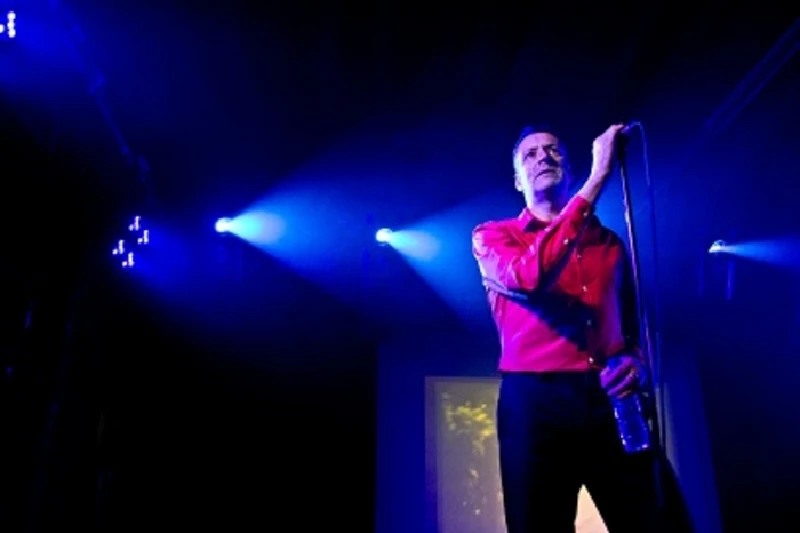
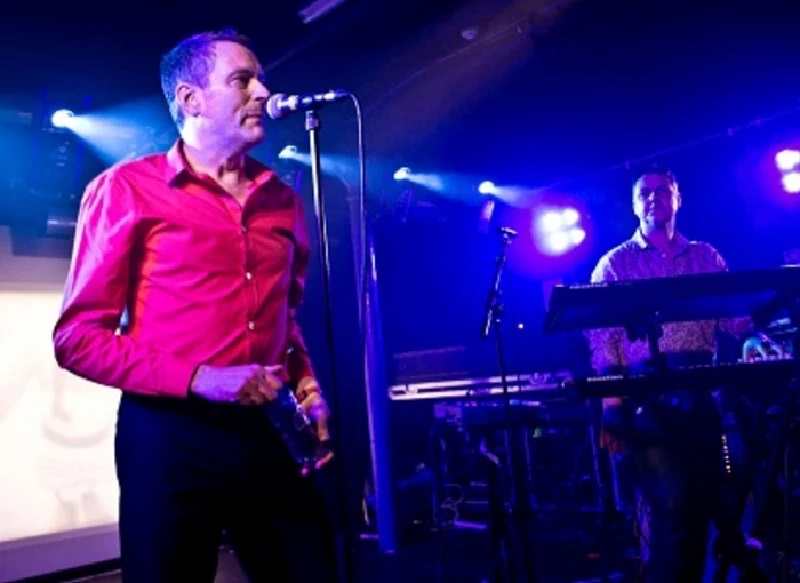
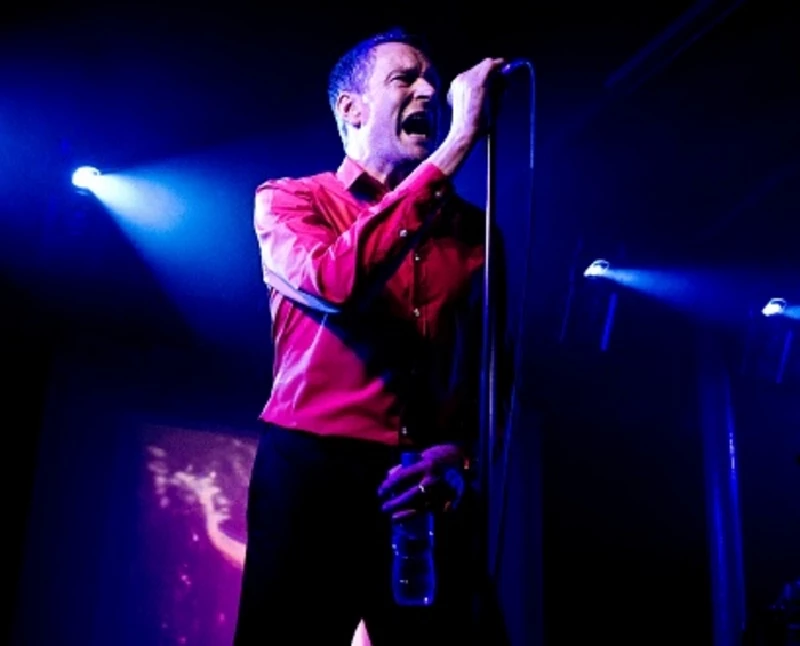
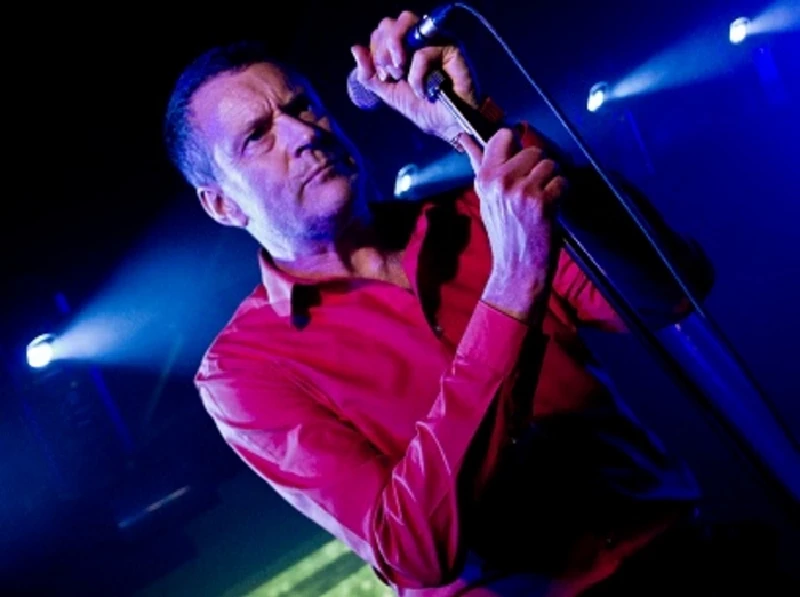
interviews |
|
Interview (2020) |
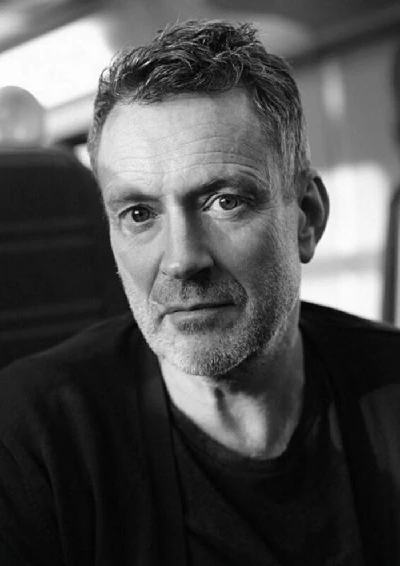
|
| Dave Goodwin speaks to Neil Arthur from seminal electronic group Blancmange about their 80's-influenced new and twelfth album, 'Mindset'. |
| Interview (2016) |
| Interview (2011) |
profiles |
|
Profile (2017) |
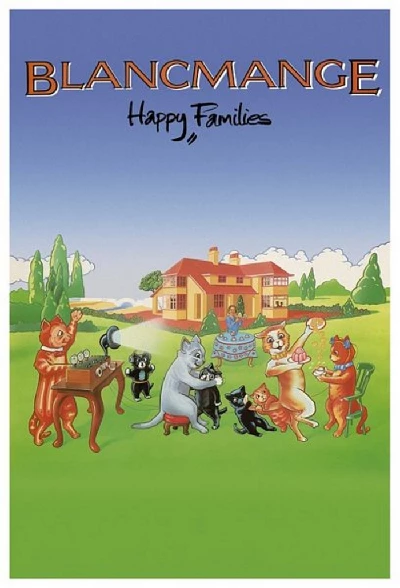
|
| Tony Gaughan examines a detailed and in-depth nine CD retrospective from synth pop duo Blancmange, which compiles together their first three albums with remixes, session tracks, demos and live performances |
live reviews |
|
Rescue Rooms, Nottingham, 24.5.2024 |
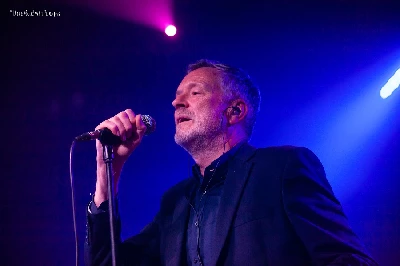
|
| Synth pop pathfinders Blancmange are on sterling, career-spanning form in Nottingham. Dave Goodwin reviews. |
| Rescue Rooms, Nottingham, 12/11/2013 |
| Blancmange |
soundcloud
reviews |
|
Commercial Break (2021) |
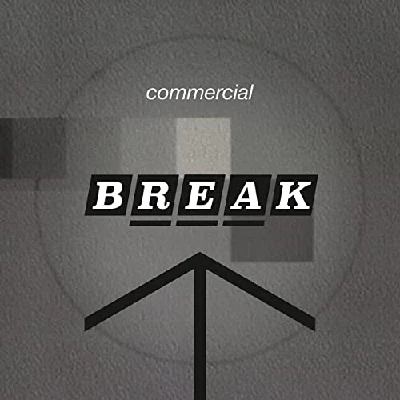
|
| 1980s synth-pop progenitors Blancmange maintain their highly prolific release rate with a solid new addition to their discography |
| Mindset (2020) |
| Wanderlust (2018) |
| Unfurnished Rooms (2017) |
| Semi Detached (2015) |
most viewed articles
current edition
Carl Ewens - David Bowie 1964 to 1982 On Track: Every Album, Every SongArmory Show - Interview with Richard Jobson
John McKay - Interview
Colin Blunstone - Thalia Hall, Chicago, 16/7/2025
Bathers - Photoscapes 1
Billie Eilish - O2 Arena, London, 10/7/2025
Loft - Interview
Visor Fest - Valencia, Spain, 26/9/2025...27/9/2025
Sir Tim Rice - Interview
Robert Forster - Interview
previous editions
Manic Street Preachers - (Gig of a Lifetime) Millennium Stadium, Cardiff, December 1999Heavenly - P.U.N.K. Girl EP
Beautiful South - Ten Songs That Made Me Love...
Oasis - Oasis, Earl's Court, London, 1995
Peter Perrett - In Dreams Begin Responsibilities Interview Part One
Boomtown Rats - Ten Songs That Made Me Love....
Coldplay - Wembley Arena. London, 16/8/2022
Prolapse - Interview
Pixies - Ten Songs That Made Me Love...
Trudie Myerscough-Harris - Interview
most viewed reviews
current edition
Davey Woodward - Mumbo in the JumboSick Man of Europe - The Sick Man of Europe
Lucy Spraggan - Other Sides of the Moon
Amy Macdonald - Is This What You've Been Waiting For?
Phew, Erika Kobayashi,, Dieter Moebius - Radium Girls
Suzanne Vega - Flying With Angels
Bush - I Beat Loneliness
Alice Cooper - The Revenge of Alice Cooper
Cynthia Erivo - I Forgive You
Blueboy - 2
Pennyblackmusic Regular Contributors
Adrian Janes
Amanda J. Window
Andrew Twambley
Anthony Dhanendran
Benjamin Howarth
Cila Warncke
Daniel Cressey
Darren Aston
Dastardly
Dave Goodwin
Denzil Watson
Dominic B. Simpson
Eoghan Lyng
Fiona Hutchings
Harry Sherriff
Helen Tipping
Jamie Rowland
John Clarkson
Julie Cruickshank
Kimberly Bright
Lisa Torem
Maarten Schiethart